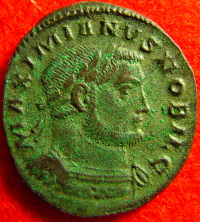Ρίγος < ῥῖγος και άρα (F)ρῖγος
Πιθανό να σχετίζεται με την φρίκη.
Φρίκη < Φρίξ και Φρίσσω, φριξός, φριχτός.
Η φρίκη έχει δύο νοήματα που πιθανότερο όμως είναι να συνδέονται.
1. ο μικρός κυματισμός
2. το ανατρίχιασμα λόγω κρύου, φόβου, έντονης συγκίνησης
Ο φριξός μπορεί να σημαίνει και αυτόν που τον έχει κατακλήσει η Φρίκη, αλλά και αυτόν που την προκαλεί, τον τρομαχτικό και τρομερό.
Ενδιαφέρον είναι το σύνθετο παράγωγο Αφρική, σε συνδυασμό με το στερητικό "α-".
Το Αγγλικό Freak δεν περνάει από το νου τους να το συνδέσουν οι Άγγλοι ετυμολόγοι αν και τελικώς η ετυμολογία του είναι άγνωστη.
freak (n.1)
1560s, "sudden and apparently causeless turn of mind," of unknown origin. Perhaps it is from a dialectal survival of a word related to Middle English friken "to move nimbly or briskly," from Old English frician "to dance" [OED, Barnhart]. There is a freking attested in mid-15c., apparently meaning "capricious behavior, whims." Or perhaps from Middle English frek "eager, zealous, bold, brave, fierce"
Και τα 2 νοήματα όμως παραμένουν σταθερά με τις 2 Ελληνικές εκδοχές.
Το friken "to move nimbly or briskly," from Old English frician "to dance" ταιριάζει με το πρώτο, τον κυματισμό, ενώ το frek "eager, zealous, bold, brave, fierce" ταιριάζει με τον "φριξό"
Πιθανό να σχετίζεται με την φρίκη.
Φρίκη < Φρίξ και Φρίσσω, φριξός, φριχτός.
Η φρίκη έχει δύο νοήματα που πιθανότερο όμως είναι να συνδέονται.
1. ο μικρός κυματισμός
2. το ανατρίχιασμα λόγω κρύου, φόβου, έντονης συγκίνησης
Ο φριξός μπορεί να σημαίνει και αυτόν που τον έχει κατακλήσει η Φρίκη, αλλά και αυτόν που την προκαλεί, τον τρομαχτικό και τρομερό.
Ενδιαφέρον είναι το σύνθετο παράγωγο Αφρική, σε συνδυασμό με το στερητικό "α-".
Το Αγγλικό Freak δεν περνάει από το νου τους να το συνδέσουν οι Άγγλοι ετυμολόγοι αν και τελικώς η ετυμολογία του είναι άγνωστη.
freak (n.1)
1560s, "sudden and apparently causeless turn of mind," of unknown origin. Perhaps it is from a dialectal survival of a word related to Middle English friken "to move nimbly or briskly," from Old English frician "to dance" [OED, Barnhart]. There is a freking attested in mid-15c., apparently meaning "capricious behavior, whims." Or perhaps from Middle English frek "eager, zealous, bold, brave, fierce"
Και τα 2 νοήματα όμως παραμένουν σταθερά με τις 2 Ελληνικές εκδοχές.
Το friken "to move nimbly or briskly," from Old English frician "to dance" ταιριάζει με το πρώτο, τον κυματισμό, ενώ το frek "eager, zealous, bold, brave, fierce" ταιριάζει με τον "φριξό"





